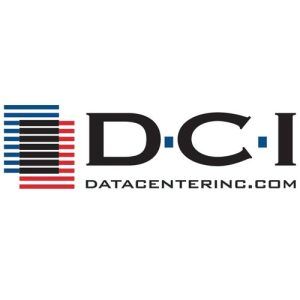Community bankers have long been community changers. Through their service to small businesses and local economies, their impact on the lives of their customers and neighbors is undoubtedly far-reaching. Nevertheless, the community of community bankers and changers is, in and of itself, changing rapidly — enough for some to declare it under attack. Why is that?
Today’s digital age has posed, to some extent, challenges for all financial institutions. Not least of which, however, are community banks. Many in the community banking industry watch as digital evolution takes wind and ask themselves, “How am I to keep up?” They face the challenge of providing a competitive rate of return. They wonder how to maintain efficient operations with limited resources. Often, they turn to what they perceive as the only clear solution: merging. They do this because one look at today’s technology tells them they are being left behind, and in some cases, they are.
The question is not whether technology renders community banks vulnerable in today’s market, but rather, what are we to do about it? Driven by the passionate belief that community banking is worth fighting for, we look beyond the bounds of the traditional core ecosystem to find our answer: opportunities to innovate and diversify income streams. Consider these examples:
- BaaS
- Fintech partnerships
- Digital banking/expanded market reach
- Robust product offerings
In capitalizing on these opportunities, the importance of choosing the right technology partner is stronger than ever. For community bankers who want their foot in the door of new markets, a trusted partnership yielding new technologies, product offerings, and more is invaluable. Accordingly, the answers to the following questions must inform community bankers’ decisions:
- Which partner can provide the most consistently innovative and agile technology?
- Which partnership will equip my bank with the most robust set of product offerings and capabilities?
- Which partner recognizes the true value of community banking and intends to uphold and build on my bank’s identity and legacy?
- Which partner can be trusted to expertly guide this journey and deliver the information my bank needs to excel in the digital age?
As community bankers make the careful choice of whom to partner with in charting their future course, settling for a provider who falls short in their answer to one or more of these questions is simply not enough. Too often, for example, a provider will attempt to sell community bankers the assurance of technology that is not yet live. They market the anticipation of forward-thinking innovation without the active, proven products to back it. Remaining mindful of such deception is important. When a partnership signifies an investment in the continued success of a community bank, there is no room for false promises.
In exceeding expectations through ever-evolving, cutting-edge technology, a community bank’s partner should of course augment the products and services offered both locally and digitally. Trusted guidance and a customized, consultative approach should help determine exactly how that is executed. Doing so successfully, however, demands a commitment to customer-centricity. Larger institutions may have the technological advantage, but a community bank’s dedication to strong customer relationships will always be its greatest differentiator. As such, a technology partner who recognizes, values, and upholds this standard of people-first banking is essential — that is how community banking endures and prospers.
Sarah Fankhauser, President and CEO of DCI (the privately-owned developer of core processing, digital banking, and Fintech processing solutions), shares her insight on the matter, saying, “DCI’s community banking partners might come to us for our technology, but our commitment to customer service is why they stay. In addition to innovative offerings, finding a technology provider who cares enough to be your partner through it all is what makes a successful collaboration. It’s the difference between surviving versus thriving in today’s market.”
The task of adapting and advancing in a financial landscape where technology dominates is certainly a challenge for community banks. More than that, however, it is an opportunity. By embracing innovation and building partnerships with trusted technology providers, community banks can expand their reach, diversify their income streams, and thrive in the digital age.
With regard to the challenges ahead, there is no doubt that leveraged technology and a continued commitment to customer service will lead this vital force for our economy far. Rest assured: the future of community banking is bright.
To learn more, please visit www.datacenterinc.com.










